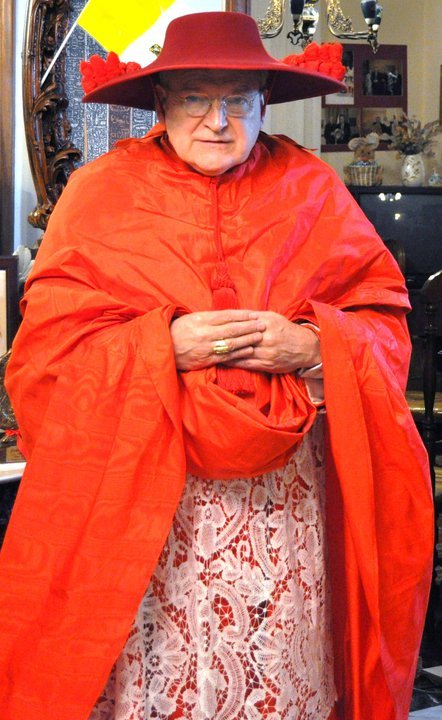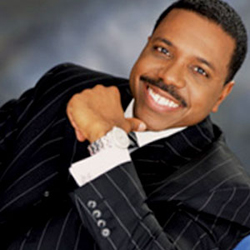* * * * * *
Let's start with a basic fact: Americans are leaving organized religion. It's mainly younger folks, but it's also happening for many of us older folks as well. Here's some data from the folks at the Pew Research Center:
So the bigger question is why, and since I can only speak for myself, I've noted that opinion directly below.
1. Relevance
What's the relevance to going to church every Sunday and repeating the same prayers over and over again? How does organized religion help us deal with an increasingly complicated world?
The answers as I see it seem to be, sadly, "none" and "it doesn't".
I can repeat the Nicene Creed 20 times and exactly how does this help my soul? They are just rote words, memorized through decades of practice. There have been countless religious people who led those prayers and yet clearly didn't believe them, as they were later convicted of horrible crimes. Clearly, just saying the words has no real power. In my mind there is no relevance in the rote repetition of words. Form becomes more important than substance in many religious experiences.
Over the years I've found far more substance, far more relevance, far more help outside of organized religion than I ever found inside of it. That's a sad and tough statement to make, but it has the benefit of being true. My religious formation never prepared me for the moral questions I have to deal with as a functioning adult; instead it just instilled within me a set of memorized prayers and a tremendous amount of guilt for not following to a precise letter what was deemed to be a set of rules.
Sunday (or any day...) worship should be a time when we can reflect on who we are, why were are here and how we can live up to what God has in store for us.
2. Command and Control and Guilt
When I was younger I would go to church because my mother commanded it. When I was in college, I was actually the president of the Catholic student's group during my senior year. I genuinely believed, I think, but part of that belief was embedded with the guilt associated with failing to act on religious indoctrination. I went because I was guilted into going...I was afraid not to go.
Slowly but surely, as I grow older, I began to question the command and control structures that I was placed under as a child. I began to see that many of the Priests I knew were surely good men, but yet they were just men. That's okay by the way, but it just happens to run counter to how this was all set up for me when I was a child, where the Priest was, effectively a representative of Jesus on Earth. That's too high of a standard for any man, but when you need to command and guilt people into conformity, it's a necessary, if not a nasty business.
Speaking of guilt, I've struggled tremendously in my 20's-40's with guilt by the way, and much of it has traceable roots back to my religious formation. Feelings of "it ended up being this way because you acted that way" or "you're being punished for this" routinely pinged around in my sub-conscious. It's actually pretty reasonable, in a perverse kind of way, when you consider for example the religious concept of Original Sin, whereby all of us are guilty as we enter this very world. It was as if God kept some kind of cosmic accounting ledger, where you automatically started life off $1,000 in the red. I learned, through several channels (a good chunk of it being religious formation though), to question every thought I had and every action I took, as if I were somehow incapable of doing most of anything right.
My religious education also instilled in me an artificial respect for authority which has not served me well as a professional. In my head, it's not much of reach to go from "you must respect every Priest" to "you must respect every Vice President", even if neither the Priest or the Vice President were actually worthy of that respect. Again, I've known many Priests who were/are certainly worthy of respect, but yet that's because of WHO they are, not WHAT they are, a fact that was not part of my religious upbringing. That has been, and continues to be a tough thing to work through.
3. No Closer To God
Nothing in my religious upbringing ever brought my closer to having a relationship with God. How could it? Why would God, for example, deems that newborn babies were sinners? Why would God look favorably on someone who just memorizes and says the same prayers over and over again but yet doesn't either know or care what the words actually mean? Why would simple repetition please God anyway? Why was form so much more important than substance to God?
Mind you, there were a few moments in my religious formation where maybe the concept of really trying to understand the nature of God was touched on, but all of that was far, far outweighed by an emphasis on form over substance, memorization over genuine passion, conformity over originality. I was taught the importance of "doing" things the "right" way...and the punishment for failing to do so...and very little about what God is really about.
4. Old Narratives
I was taught that there was an actual Adam and Eve (see the concept of Original Sin, above), and yet it makes absolutely no sense. The human race could not be the product of two fully formed modern human beings; the need for genetic diversity alone teaches us that if this were in fact true, our race would have died out long ago due to a myriad of defects. It just doesn't make sense.
I was taught that all human spoke the same language at one time, that is until the whole Tower of Babel incident. Yet this just doesn't make sense outside of the whole Adam and Eve narrative.
My point isn't to dismiss these stories, because I do think that stories have power. However that power only comes when we can connect the story to something of importance today. It also helps if the story is more than just a mechanism to try and enforce generational (and gender) shaming. My only glimmering of hope in all of this were some of the Sisters of the IHM order who, over the years, at least tried to make connections between Bible, religious tradition and the reality of life for a teenager.
As we grow older and begin to question what we've learned, it's easy to see that many of these old narratives we learn in organized religion are designed with shaming and control in mind, and little else. If anything, many of these stories paint a picture of God as someone who likes to harm and destroy, something that is interested in ego gratification via worship. Why would a Supreme Being need to have an ego stroked? Why would a Supreme Being decide to kill just about everyone on the world It created (Noah, flood, etc.)? Oh, I forgot the whole "we are bad" part. It just doesn't make sense. If "God is Love" then how could "Love" destroy the world via Noah's flood?
These old narratives could connect to modern life. They could be used to help us better understand ourselves, yet that wasn't my religious experience, and I suspect that's true for others as well. Instead, they were used to paint a picture of an angry, selfish God who demands worship and punishes those who fail follow what are said to be God's rules...rules which strangely seem more like men's rules.
5. The Emperor Has No Clothes (or is wearing bright red clothes)
"When you claim to speak for God you has better darn well make sure you have your 'stuff' together."
The above seems like a pretty reasonable statement, right? Yet how many times have we, in this modern era where news flies at the speed of electrons across the Internet, seen moral failings on display by those who claim to speak for God? Sometimes those failings are overt and harmful, such as the many religious accused of harming children. Sometimes those failings are more like just blatant hypocrisy, such as my favorite hypocrite, Cardinal Raymond Leo Burke.
(from THIS source)
Cardinal Burke is fond of many fine things and dresses as a prince, but yet I can't help but contrast his appearance with the biblical description of John the Baptist (according to the Gospel of Mathew, Chapter 3, verse 4):
"John wore clothing made of camel’s hair and had a leather belt around his waist. His food was locusts and wild honey."
What, no red hat? No gold ring? It's worth noting that Cardinal Burke is a staunch conservative, which means that he's rather fond of telling you just how poorly of a job Pope Francis is doing at any given moment. In my mind, Cardinal Burke does an outstanding job of exemplifying much of what is wrong with organized religion, from a smug indifference to othose outside his clique to an emphasis of dogma over compassion. This isn't 1800 and he can't hide behind the Vatican walls and his red dress. Cardinal Burke and those of his ilk deserve some of the credit for the failings of modern religion because they exemplify the very contradiction that is modern religion: Do as I say, not as I do...the rules are not meant for me, they are meant for you. Yes, I am sure that Cardinal Burke follows Church rules to the hilt, but does it seem like he would be the kind of guy who would be helping the poor and destitute? It's those rules, the rules that many of us think that Jesus Christ exemplified...that the Cardinal Burke's of this world thumb their noses at, simply because their egos have inflated to the point of completely filling in their red robes.
(from THIS source)
Now it's not just Cardinal Burke, mind you; we also have those such as the Reverend Creflo Dollar, who (dressed in his own version of fancy vestments, namely very expensive suits) wants his followers to fund a Gulfstream jet for his "godly work" (read more HERE).
Are Raymond Leo Burke and Creflo Dollar exceptions or the rule? Probably more the former than the latter, but yet they are both successful in their roles in exemplifying the worst that religion has to offer. I'll also add that they are both actively engaged in their religious work.
* * * * * *
Post Script
Here's an odd ending to all of this: I still go to church on occasion, and mostly I enjoy the experience. I find a kind of comfort in the repetition of some prayers, even if some of those prayers are slightly different (re: Episcopalian) versions of what I learned as a child. I am also fond of quoting scripture in this blog from time to time; for that you can thank the perviously referenced good Sisters, Servants of the Immaculate Heart of Mary.
I am far more interested in learning about religion today than I ever was as a child. I have a nice collection of religious-related books in my home office. I find the reading to be an interesting way to both better understand myself and understanding why we humans think and act they ways we do from time to time.
Mostly though, my real spiritual growth occurred in my mid-late 40's, up until now. Maybe that's a function of the luxuries that time and maturity bring. Maybe I was just wasn't ready earlier. Regardless, I'm still learning.



No comments:
Post a Comment